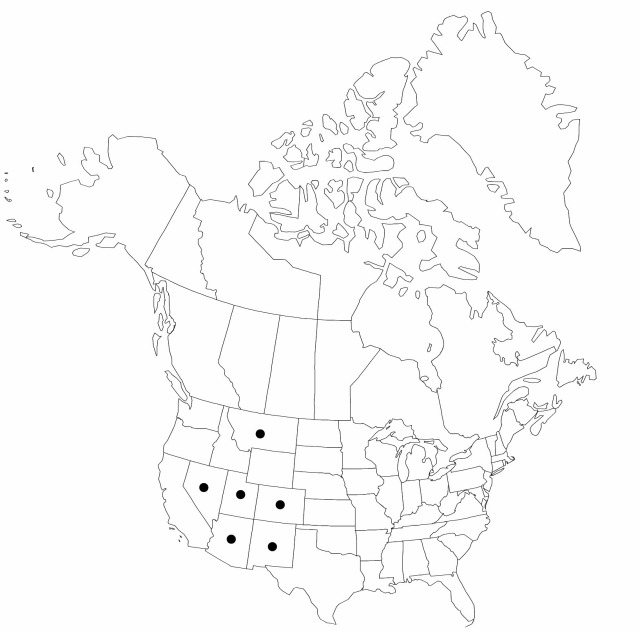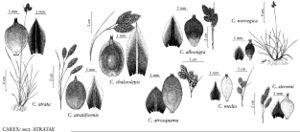Carex chalciolepis
Amer. J. Sci. 166: 28, figs. 1–5. 1903.
Plants densely cespitose. Culms 20–50 cm, smooth. Leaves 2.5–5 mm wide. Inflorescences: proximal bracts shorter than or exceeding inflorescences; spikes contiguous, overlapping, distinct or the proximal separate and pendent, elongate, 10–25 × 6–10 mm; proximal long-pendunculate; lateral 3–6 spikes pistillate or, rarely, gynecandrous; terminal spike gynecandrous. Pistillate scales chestnut or brownish black with hyaline margins, lanceolate, equaling or longer than and narrower than perigynia, midvein same color as body, inconspicuous, slightly raised, prominent. Perigynia ascending, purple-brown with green or pale yellow margins, veinless, broadly ovate, 3–4 × 2.25–3.5 mm, apex abruptly beaked, distally papillose; beak 0.3–0.5 mm, entire or shallowly bidentate, smooth. Achene filling proximal 1/2 or less of perigynium.
Phenology: Fruiting Jun–Aug.
Habitat: Subalpine and alpine meadows
Elevation: 3000–4000 m
Distribution

Ariz., Colo., Mont., Nev., N.Mex., Utah.
Discussion
Carex chalciolepis has pendent spikes with an almost shaggy appearance from pistillate scales typically longer than the perigynia. Similar forms are found among C. aterrima Hoppe in eastern Siberia.
Selected References
None.
